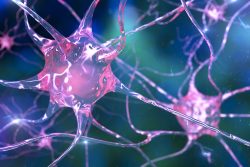 Memory plays a pivotal role in shaping our health and identity. It forms the foundation of our individuality, our interactions, and our ability to make safe and healthy decisions. New research is beginning to reveal that human memory might be far more intricate than previously understood.
Memory plays a pivotal role in shaping our health and identity. It forms the foundation of our individuality, our interactions, and our ability to make safe and healthy decisions. New research is beginning to reveal that human memory might be far more intricate than previously understood.
Research has discovered that cells in kidney and nerve tissues can store memories similar to brain cells. These findings may enhance our understanding of memory-related disorders and improve treatment strategies. The researchers are investigating whether various body parts can create and retain their own forms of memory, and examining how these memories could influence and be affected by our health.
Previous studies focused on sea slugs due to their capacity to form basic memories, simplifying the understanding of memory formation. The current research has identified an even more fundamental type of memory, common not only among various animals but across all cell types.
In laboratory experiments, the research team studied memory formation in two types of human non-brain cells: nerve tissue cells and kidney tissue cells. They exposed these cells to chemical signals in a pattern that emulates how brain cells learn from neurotransmitters, the brain’s chemical messengers.
The study revealed that these non-brain cells responded to chemical stimuli by activating a gene connected to memory storage. This indicates that, similar to brain cells, various cells in the human body may also have the ability to store memories. Every cell records its own experiences. The memories held in non-brain cells elsewhere in the body are directly linked to the specific functions those cells perform in maintaining human health.
The recent study provides initial evidence, yet other recent investigations more definitively illustrate how memories stored in body parts other than the brain might influence health outcomes. For example, research has shown that cells in adipose (fat) tissue retain a memory of obesity even following weight loss, which may contribute to the rapid regain of lost weight, known as the yo-yo effect.
The hope is that future research will provide answers and solutions.
To view the original scientific study click below:
The massed-spaced learning effect in non-neural human cells





